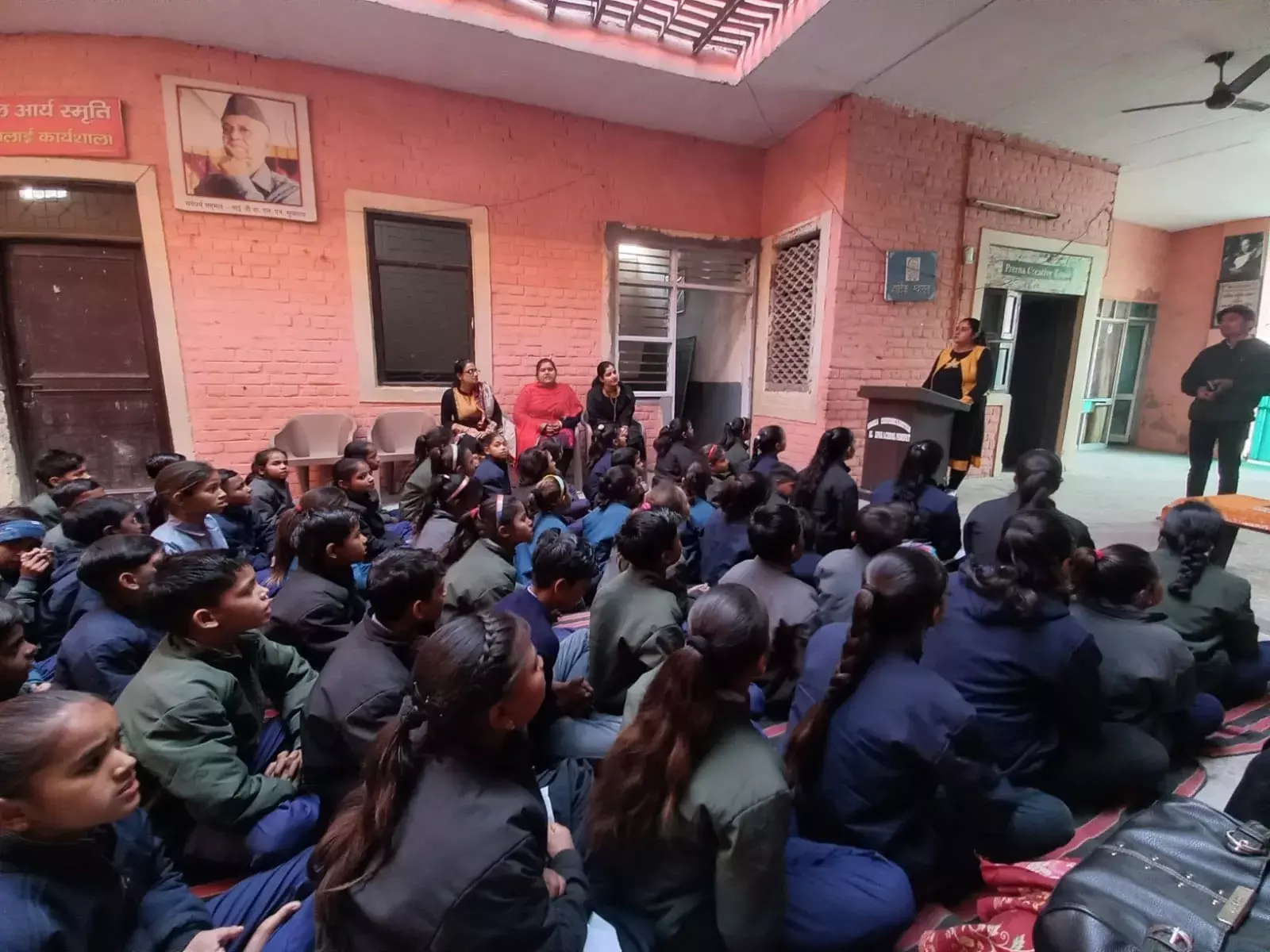The Children of Panipat
Their parents work in garment factories, at construction sites and tea stalls

Panipat is a small city. It is a city of commerce and poetry, of religion and textile. Dark faces, red faces, long Afghan noses and short stubby ones, tall lean sinewy men, short and stocky men, women dressed in salwar kurtas and swathed in fuzzy maroon and mustard shawls. Their faces and hands are lined and creased with sunlight and toil. People in Panipat look familiar, and it really has little to do with their faces.
In a corner of Panipat is the Haali Apna School opened in memory of poet and reformer Khawaja Altaf Hussain Hali Panipati. The director of the school is Ram Mohan Rai. It is a humble brick structure, sandwiched between two others, the school spilling onto the road strewn with cement and mortar. Inside is a large courtyard with light that streams in through a brick mesh ceiling. It is here that I met 200 of the most beautiful children of Panipat.
They sat on a rug on the floor, all ages. Three year olds that looked like they were little more than bits and bobs of clay, climbing over their older brothers and sisters, facing the wrong way, crying out with delight and frustration. Eight and ten year olds with eager and beaming faces, not yet fully aware of the shadow of judgment and failure.
The older children, young men and women, looked shy, conscious of themselves, aware of their long and spindly bodies, wary of our gaze. Together they were a sea of rough blue uniforms and brown hair.
We were introduced to the students by Ram Mohan Rai as his ideological compatriots, friends who knew each other through ideas and a vision. They sang for us, the National Anthem, and a prayer. The prayer was an all faith prayer, it started with a Vedic hymn, and then a verse from the quran, followed by Sikh, Jain, Buddhist, Christian and a Hindu prayers.
Their voices raised in unison, shrill and uninhibited. Their loud songs compelled us to join them, to be a part of their discipline. Then there was dancing, happy and free dancing. The young women imitated the steps of grown women, graceful in their slender movements.
They ended by singing 'hum dekhenge' a ghazal by Faiz Ahmad Faiz, and shouts of a working people's song, 'O worker, strive hard'. They were a grand sight, youthful and exuberant in their strong music.
I wanted to tell them, You don't know this, but I love you. I want to give my life to you. I wanted to understand them on their terms. I wanted to know their anxieties and fears, their aspirations.
I wanted to tell them how beautiful they were, those wonderful brown faces. I wanted them to know how intelligent and capable they were, no matter what grown people around them said. I wanted them to understand that older people were often broken by life, and what they said about them was really most often about themselves.
I wanted to tell them, you will decide the future. I felt as though we were old friends, meeting after a painful separation, and that they recognized me, just as I knew them.
We spoke with the young men and women after the assembly. They wanted to know, what is America like? How come Panipat is so dirty and how can we fix it? One young man asked, what is success? We asked them, what music do they listen to, which films do they watch? What work do they want to do? Do they use instagram?
Our conversation moved in staccato, us speaking much more than them. They seemed reluctant to open up in the group, who knows when someone will use your vulnerability against you?
Afterwards a few young women cornered me, hesitating at first. They were so happy to meet me, they said. I told them I was too. They blurted out many of their thoughts, "my parents want me to get married, I am fifteen, I like to be in the city, village life is difficult, we want to be free, we want to be trusted enough to be allowed to go where we want, study what we want, how will society ever change, I don't know how I'll do in my exams".
I told them of my own experience, so different from theirs. Some of the young men spoke to my comrade: "We want to be men, they seemed to be saying, to protect our young siblings, contribute to bearing our parents' burden, but how? Studying is difficult, but I want to make something of myself. Do you know what I should do?"
They are the children of workers. Their fathers and mothers work in garment factories, at construction sites and tea stalls. They are children of that India which was born in the villages where there is no work. They live between the slowness and clannishness of the village, and the speed and anonymity of the city.
They are the youth that will define the world's future. The West is a part of their consciousness, and they are taught of their inferiority early, yet, they do not aspire to be Westernised. These are the young men and women are striving for more, fighting for survival and struggling to assert that they are somebody.
As we watched them sing their songs in the sun, we asked ourselves, what will happen to all that beauty? Their quest is long and full of meaning. Each of them, as individuals, represent the aspirations of our country as it matures 75 years after our struggle for freedom from bondage and slavery. As we become aware of ourselves as a nation of the poor, we will have to do right by these children of Panipat.
Nandita Chaturvedi is a fellow at the National Center for Biological Sciences, Bangalore.



